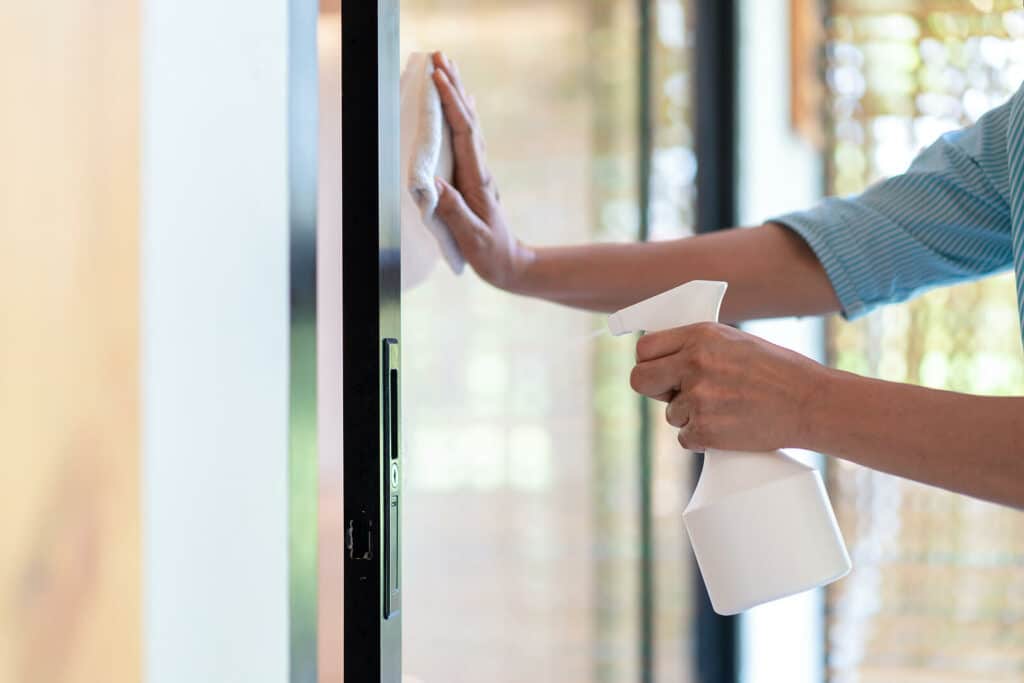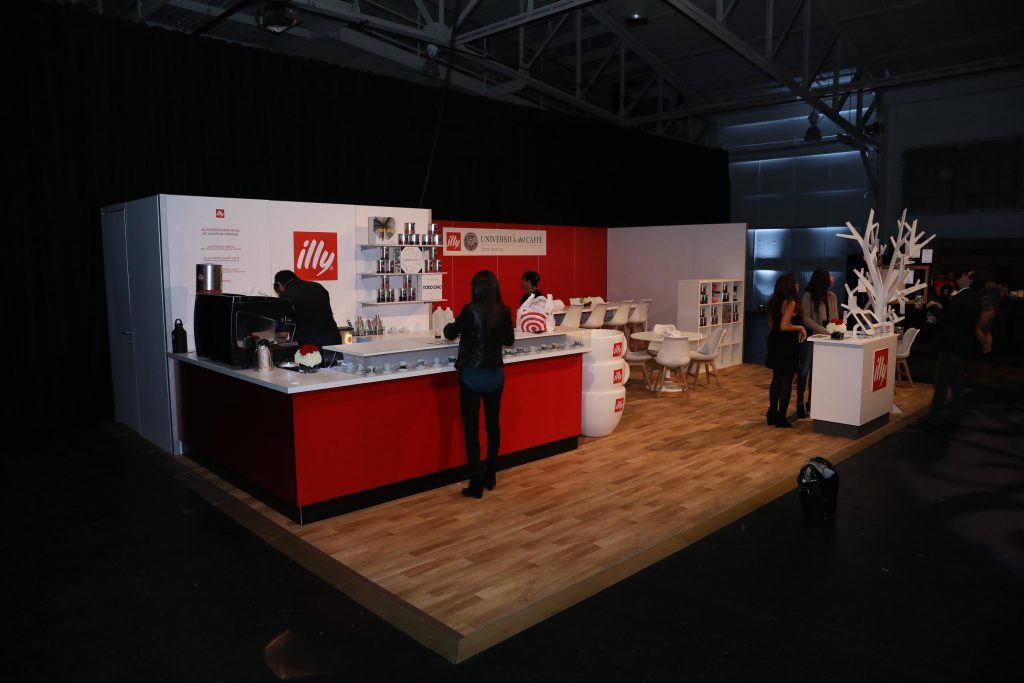Because of the events of the last year, the events industry is changing, with a larger focus on virtual and hybrid events. When live events return, it will be with a new emphasis on event health and safety. Read on for a few key ways to keep attendees safe, beyond the standard event security.
1. Hold Smaller Events
Unfortunately, mass gatherings can be prime locations for spreading illnesses. And any event may potentially be a super-spreader, where one or a couple of sick attendees spread the illness to others.
Keeping events small is a way to help mitigate the risk. At a small event, with fewer people to manage, it’s easier to keep event health safety under your thumb. The fewer people who attend, the less risk you have that one of your attendees might be an asymptomatic carrier.
2. Opt for Virtual and Hybrid Events
Going virtual is the ultimate risk-free way to hold an event. It’s fairly straightforward to transition your physical event online, and it will likely earn you better analytics than an in-person event could.
But if an entirely virtual event isn’t an option, then a hybrid event—with elements of both physical and virtual events—might be a good compromise.
By offering event content online as well as at a live venue, you give people options. Those who are interested in your content can view and participate online. People who need to attend in person can still do so, but without the higher level of risk of attending a huge event.
Is a Hybrid Event Right for You?
3. Establish Some Health- and Safety-Focused Event Rules
If you decide to hold a live event, it’s important to establish a few ground rules, both to help keep people safe and to set expectations for behavior. Some possibilities include:
- Attendees must self-certify that they’re not sick and haven’t been sick in the last 14 days; e.g. no coughs, sniffles, or high temperature.
- Attendees must have a temperature check at check-in; anyone with a high temperature may not enter.
- No handshakes, meaning either a recommendation to avoid handshakes or a flat-out ban. If you adapt the no-handshake rule, make sure to have plenty of signs around the venue to remind people.
- Use sanitization stations frequently; e.g. on entering the venue, before and after attending any session, before entering the exhibition hall.
- Wear a mask.
4. Do Health Check-Ins at the Door
Placing thermal cameras at entrances may provide extra protection for attendees. Thermal cameras work by detecting an individual’s body heat and using that measurement to estimate their core body temperature. If someone is found to have a high temperature, they can be isolated before they enter the event. This can be a faster, more efficient way of verifying temperatures than checking each individual’s temperature at the door.
It’s important to note that thermal scanning isn’t a fool-proof way to detect an infected person. Not everyone with a high temperature has an illness like the coronavirus, and not everyone with an illness like coronavirus has a high temperature. Therefore, thermal scanning should never be used as your only event health and safety measure.
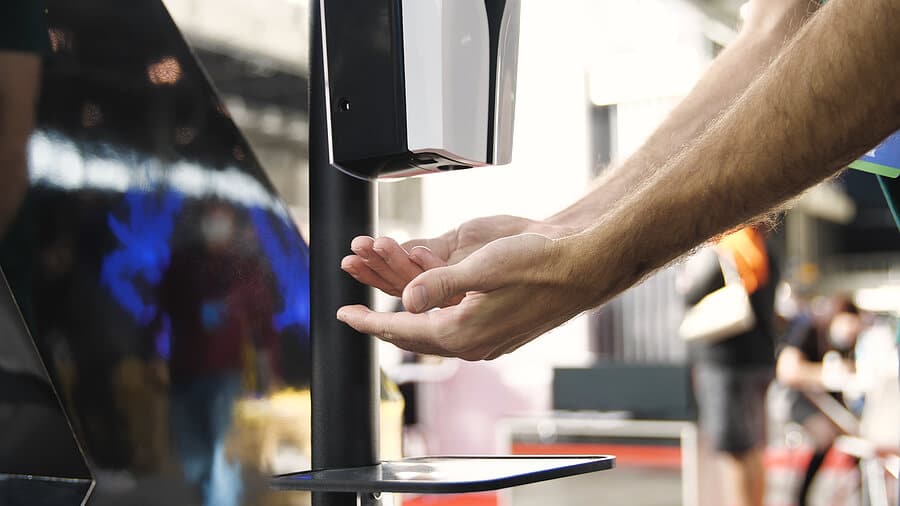
5. Add Sanitization Stations
Once people are at your event, they’ll need help from you in order to enjoy it safely. Adding sanitization stations, where people can wash or sanitize their hands, will help them do that. Another useful option may be to provide masks at each station, for people who forgot to bring their own, or who need a fresh one. Add stations at each dining area, outside conference rooms, and in exhibit halls, as well as any other location that might need one.
Make sure to schedule regular push notifications to your event app, reminding people to use the stations and wear masks.
6. Offer Contactless Options
Given that germs can be spread through touching contaminated surfaces, it’s also important to provide people with contactless options when they attend an event. This may mean investing in contactless event tech that you weren’t planning on using, but it’s important to do so—both to help people be safe, and help them feel safe. Some contactless options include:
- Contactless ticketing, such as QR codes or NFC-powered badges or wristbands
- Contactless payment for food & beverage vendors
- A robust event app, with a help bot that answers questions and gives directions
You CAN Host a Contactless Event
7. Make Social Distancing Easy
Interpersonal interactions are integral to many events, making the need for social distancing a particular challenge. For event hosts, the most practical solution may be to book a larger venue than you expect to need. This will ensure there’s plenty of room for exhibitors and attendees to interact while still maintaining the required distance.
Seating arrangements may also need some changes. For instance, theater-style seating is popular for speaking events, but may not work so well when rooms are at half-capacity. A U-shape or circular seating plan might be more appropriate.
At many events, networking and social activities are a major draw for attendees. But what if these closer-contact events are still too risky? As an alternative to traditional networking, it may be that more structured networking events get the job done, without a high level of risk. This might mean, for instance, making space for seated networking interactions.
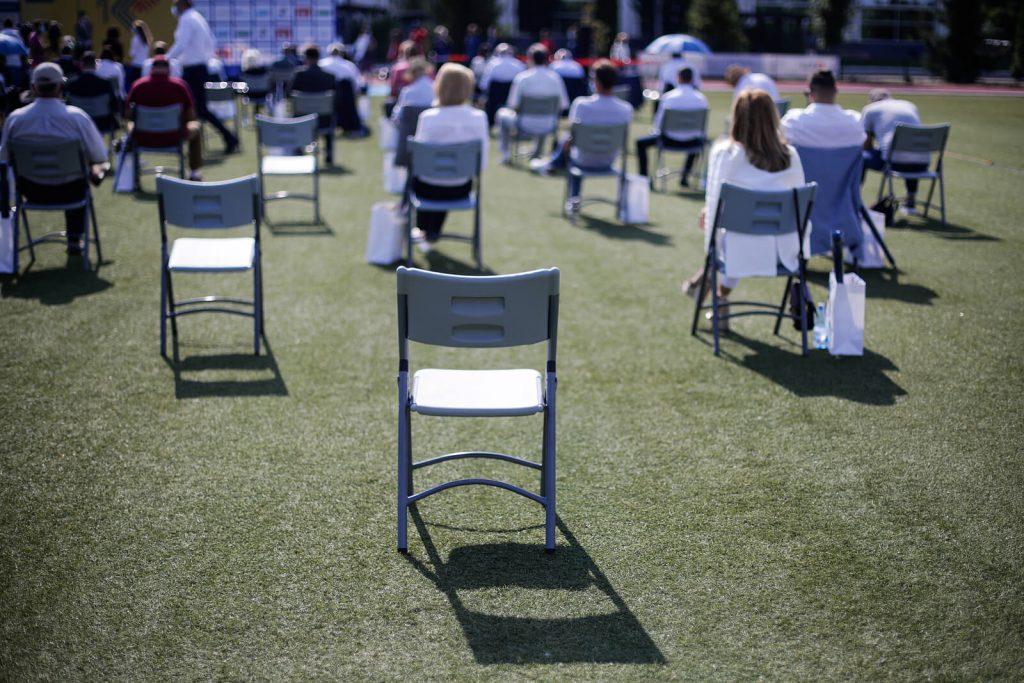
Snag the Perfect Venue
8. Clean Well and Often
An on-site cleaning crew will be another essential for future events. High-traffic areas should be cleaned and disinfected regularly. Conference halls, dining areas, and other gathering spaces should also be cleaned regularly.
9. Add an Isolation Area
Even with a host of protective measures in place, it’s possible that someone might start showing symptoms of illness while they’re at your event. Someone who was healthy when they checked in might develop a fever or cough while they’re wandering the exhibit hall or attending a lecture.
It may be unlikely, but it’s still a possibility—so it’s best to prepare for it. Designate one or two rooms as isolation rooms, and make sure they stay empty during the event. If someone becomes sick, you then have a safe space for them to wait while you contact the local hospital.
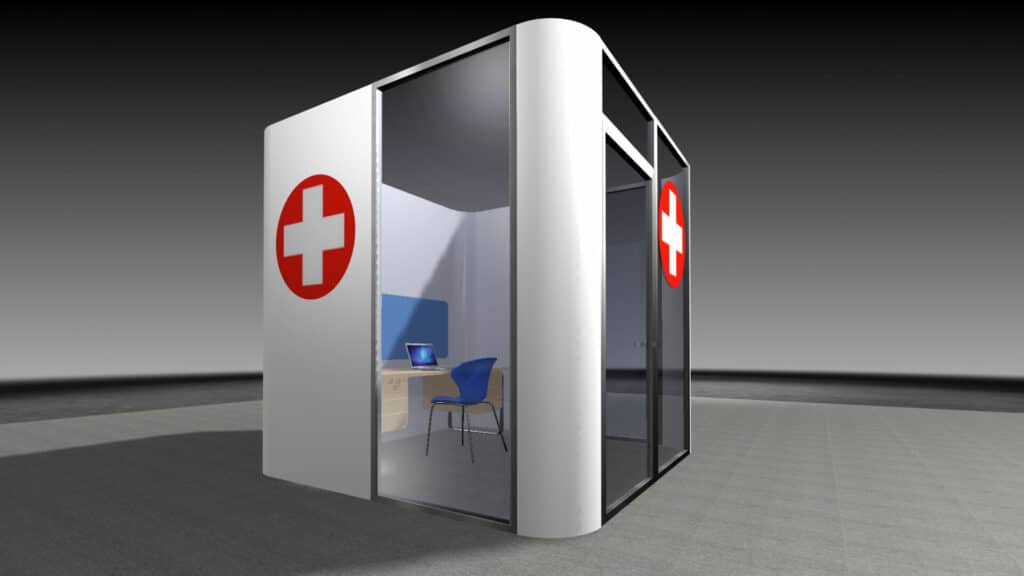
Communication Will Be Vital for Event Success
When it comes to event health and safety, communication is key. It’s not enough to have these health measures in place at your event. It’s also vital to make sure everyone who attends your event—in any capacity—is aware of them. This is important for a couple of reasons:
1. Just offering protective measures isn’t enough—people have to actually use And people won’t know to use them if they don’t know they’re there. Whichever protective measures you decide to use, publicize them well, both before the event and during the event. Some options for doing this include:
- A health and safety page on the event website, detailing what measures you’re taking and why they’re important. Include any event rules, such as no handshakes, that you decide to implement.
- A link to that event health safety page in the pre-show emails you send out to exhibitors and attendees
- Sanitization stations and other protective measures clearly signposted
- Push notifications sent to the event app reminding people to use sanitization stations
2. Once events open up again, many people won’t feel safe attending right away. It will be important that event organizers help people feel comfortable enough to do so. By putting safety measures in place—and communicating effectively about those measures—you’ll help people feel confident about attending your event.
Health and Safety Will Be a Key Part of Future Live Events
It may be impossible to predict when live events will make a full comeback. But whenever that is, it’s certain that event health and safety measures will be of paramount importance. Helping people stay safe—and feel safe—will be key to getting the event industry back up and running.
